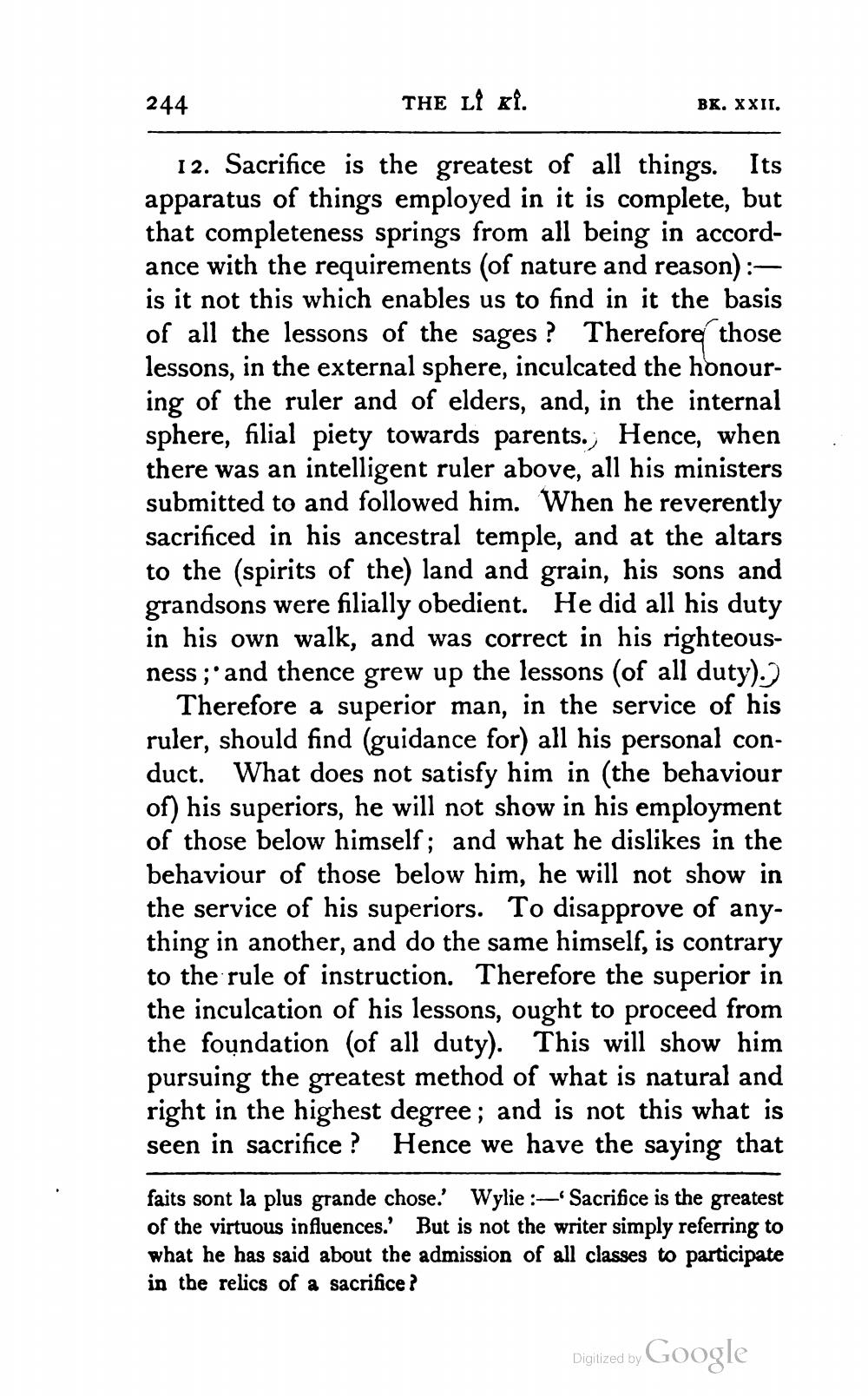________________
244
THE LÎ ki.
BK. XXII.
12. Sacrifice is the greatest of all things. Its apparatus of things employed in it is complete, but that completeness springs from all being in accordance with the requirements (of nature and reason) :is it not this which enables us to find in it the basis of all the lessons of the sages? Therefore those lessons, in the external sphere, inculcated the honouring of the ruler and of elders, and, in the internal sphere, filial piety towards parents.; Hence, when there was an intelligent ruler above, all his ministers submitted to and followed him. When he reverently sacrificed in his ancestral temple, and at the altars to the (spirits of the) land and grain, his sons and grandsons were filially obedient. He did all his duty in his own walk, and was correct in his righteousness ;- and thence grew up the lessons (of all duty).)
Therefore a superior man, in the service of his ruler, should find (guidance for all his personal conduct. What does not satisfy him in the behaviour of) his superiors, he will not show in his employment of those below himself; and what he dislikes in the behaviour of those below him, he will not show in the service of his superiors. To disapprove of anything in another, and do the same himself, is contrary to the rule of instruction. Therefore the superior in the inculcation of his lessons, ought to proceed from the foundation (of all duty). This will show him pursuing the greatest method of what is natural and right in the highest degree; and is not this what is seen in sacrifice ? Hence we have the saying that
faits sont la plus grande chose.' Wylie :- Sacrifice is the greatest of the virtuous influences.' But is not the writer simply referring to what he has said about the admission of all classes to participate in the relics of a sacrifice ?
Digitized by Google




